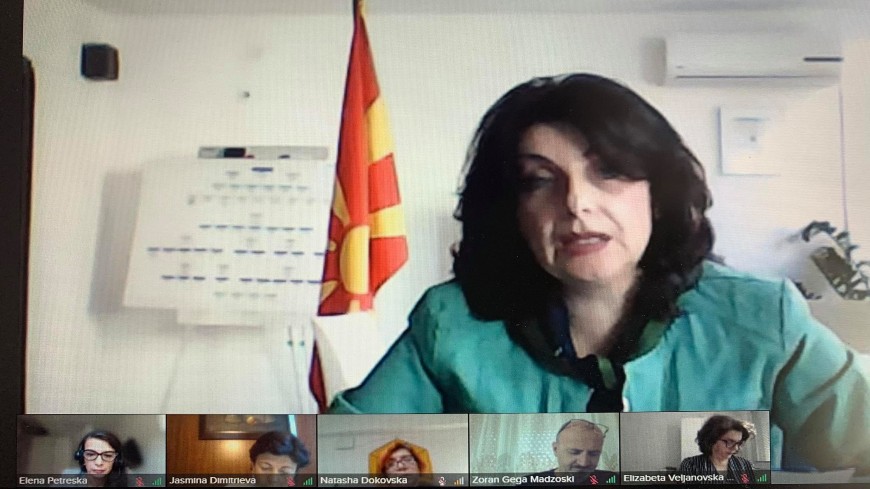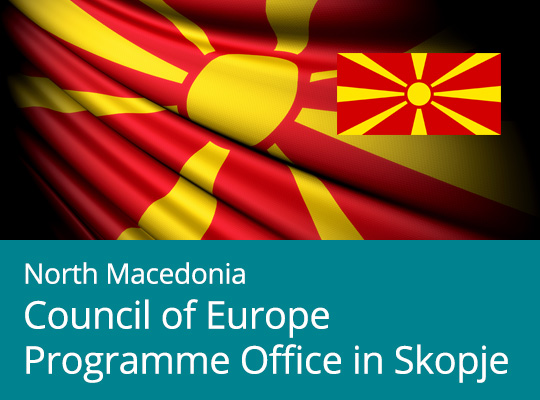On 18 October 2020, at the occasion of marking the European Anti-Trafficking Day, an online exchange with journalists, media actors and civil society representatives took place in Skopje. The event was organised by the European Union and Council of Europe joint action “Preventing and combatting human trafficking in North Macedonia“, in co-operation with the National Commission for Combatting Trafficking in Human Beings and the participation of the International Center for Migration Policy Development.
During this activity, participants exchanged views and discussed the institutional framework for preventing and combating human trafficking and on the ways the media may contribute towards raising public awareness about trafficking cases.
“North Macedonia is committed to preventing and combating trafficking in human beings. We will soon adopt a new Strategy and Action Plan. The monitoring reports of the Council of Europe Group of experts on action against trafficking in human beings and these strategic documents are the basis for our resolved fight against human trafficking. Trafficking in children is among our priorities, as there has been an increase in the numbers of detected child victims”, stated Magdalena Nestorovska, the National Anti-trafficking Co-ordinator and State Secretary in the Ministry of Internal Affairs.
In her address Svetlana Vlahovic, the Deputy National Anti-trafficking Coordinator stressed that: “Effective inter-institutional co-operation, co-ordinated by the National Anti-trafficking commission and the victim-based approach are the key to effective fight against human trafficking. The media have a great role to play in raising public awareness and thus helping prevent this crime.”
In 2019, there were six identified victims of human trafficking in North Macedonia, out of whom four were children. The dominant forms of exploitation in North Macedonia are sexual exploitation and forced marriages, while North Macedonia remains a country of transit in the trafficking of human beings.
Trafficking in human beings is one of the most serious offences to human dignity and integrity and it has been criminalised in the national legislation. The Council of Europe Convention on Action against Trafficking in Human Beings has become the key reference text in Europe, placing the focus on the protection of the trafficking victims. States Parties have the obligation to prevent human trafficking, identify and protect the victims and prosecute the traffickers.
This event is organised in the framework of the joint European Union/Council of Europe programme “Horizontal Facility for the Western Balkans and Turkey 2019 - 2022” and its action “Preventing and combating trafficking in human beings in North Macedonia”, implemented by the Council of Europe.




